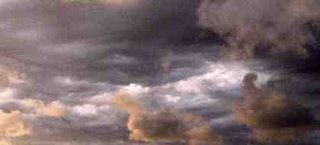
I was surprised to see Elie Wiesel’s Night on a recent Boston Globe "Local bestsellers" list. The 1958 memoir of Wiesel, who survived four Nazi death camps including Auschwitz and Buchenwald, was the #2 nonfiction paperback.
Why the renewed interest in Night, the spare masterpiece that recounts a young Elie Wiesel’s horrific journey through the Holocaust? I didn’t know why people in large numbers were again reaching for this work by the Nobel Peace Prize winner who said that "...to remain silent and indifferent" in the face of hatred, racism and genocide "is the greatest sin of all...," but I was glad to see it on the list.
In this age of life-cheapening videos and graphically violent games and the spoken word porn and depravity of gangsta rap, I was heartened to see that some considerable number of us were spending time with something important, something that holds a mirror up to our humanity and our inhumanity and dares us to walk away without fighting when we see hatred in any of its forms.
From Night:
Never shall I forget that night, the first night in
camp, which has turned my life into one long
night, seven times cursed and seven times
sealed. Never shall I forget that smoke. Never
shall I forget the little faces of the children,
whose bodies I saw turned into wreaths of
smoke beneath a silent blue sky.Never shall I forget those flames which
consumed my faith forever.Never shall I forget that nocturnal silence
which deprived me, for all eternity, of the
desire to live. Never shall I forget those
moments which murdered my God and my
soul and turned my dreams to dust. Never
shall I forget these things, even if I am
condemned to live as long as God Himself.
Never
With two mouse clicks, I discovered that Oprah was behind Night’s new chart-topping status. I should have guessed. While I’m quite tired of Oprah, I applaud her for advancing a book that every person should read.
I first read Night after visiting Dachau.
The concentration camp where 30,000 died is a short S-Bahn ride from downtown Munich. From the Dachau station, you walk past tidy suburban blocks of kempt houses and apartments with square front yards until you arrive at the wrought iron fence you’ve seen in photos and films.
"ARBEIT MACHT FREI" it taunts in chilling, black letters above the gate cut into the fence. Your heart cracks and your gut heaves and your breath clogs in your chest because you know you’re looking at the gate of hell.
I took no photographs of Dachau. The thought of shooting pictures in and of this place bothered my conscience. Like most visitors around me, I walked through Dachau in pained silence. Head bowed, eyes tear-blurred. Barracks with plank bunks stacked floor to ceiling; gas chamber disguised as communal shower with a welcoming, happy note above the entrance door and fingernail scratches on the walls; crematorium with brick ovens crafted in a hideous, benign design, as if built to bake bread.
Spending some part of one’s journeys at places like Dachau where men have reduced themselves to soulless murderers and their fellow human beings to dust is, like reading Night, difficult but important. For man to be his best, he must recognize himself at his worst.
While I took no pictures at Dachau, people like Philip Greenspun have. Unrecorded atrocity is a cry God hears but man can’t learn from. Greenspun’s Dachau photo essay is at photo.net. The Web page also contains comments from scores of Dachau visitors.
